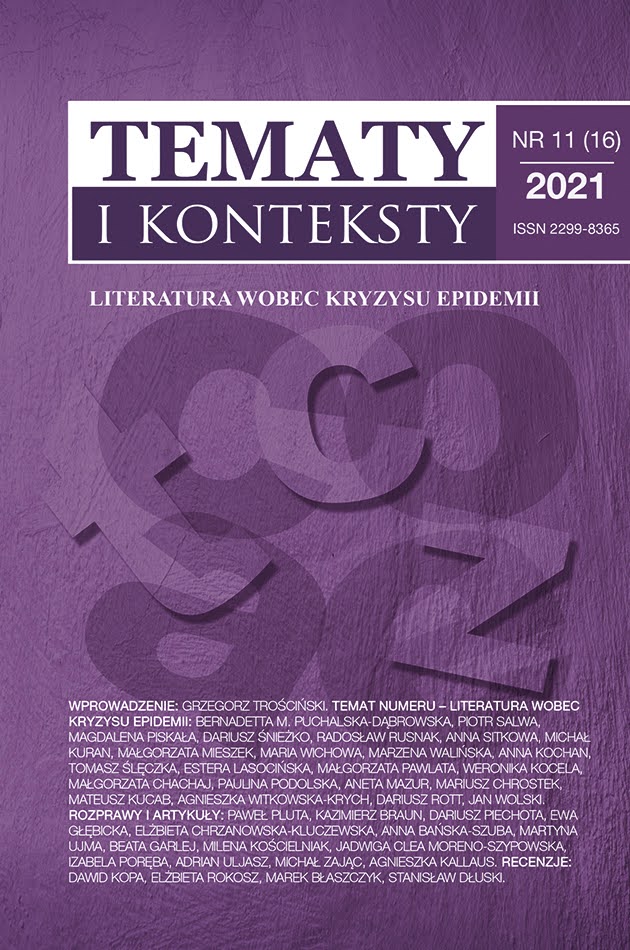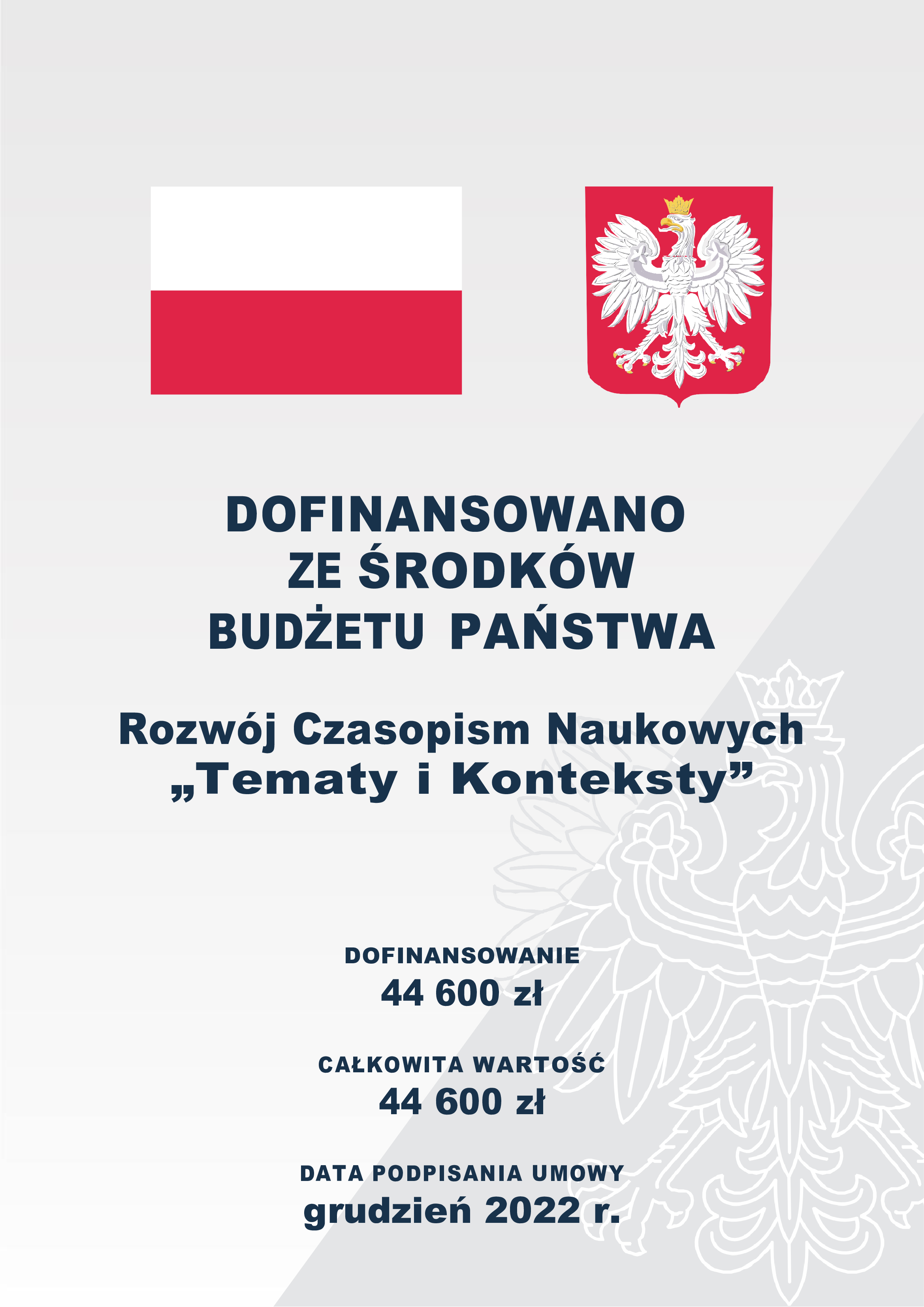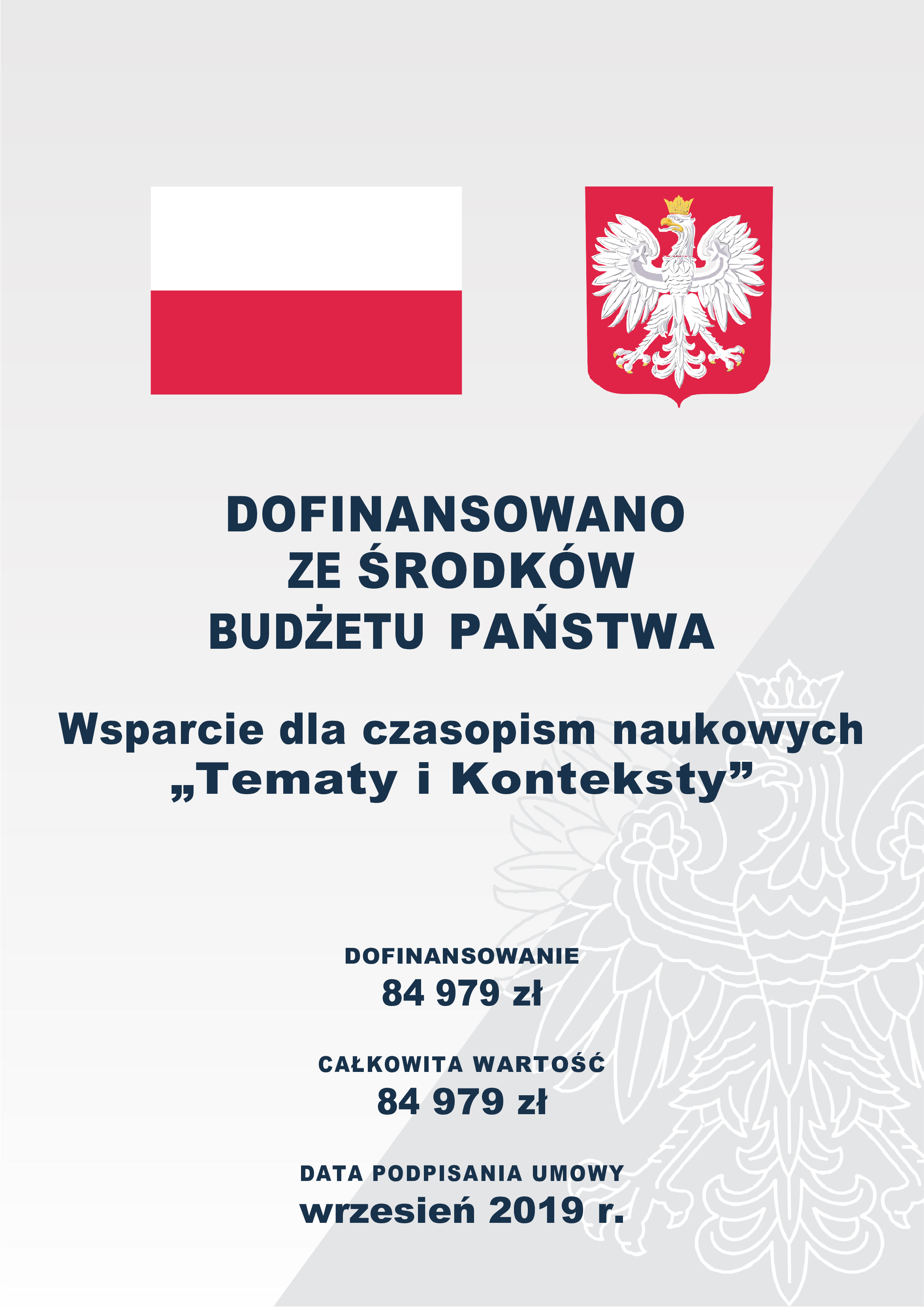The Biedermeier testimony to a plague – "Granite" by Adalbert Stifter
DOI:
https://doi.org/10.15584/tik.2021.19Keywords:
Adalbert Stifter, Granite, epidemic, the plague, Gentle Law, short story, Colorful StonesAbstract
The paper is an introduction to the Polish translation of a short story entitled Granite by the Austrian prose writer, Adalbert Stifter (1805-1868). It presents an explanation of the political and cultural context of the origin of the work, its poetics as well as its philosophical and ethical message. The short story and the collection entitled Colourful Stones (1853) in which it was included became a canonical aesthetic and ideological manifesto of the Austrian Biedermeier style as an illustration of the so-called “gentle law” (das sanfte Gesetz), i.e. a harmonious life and unspectacular daily practising of humanism in the personal, family and social space. In Stifter's work it refers also to the extraordinary situation of an existential catastrophe. Based on a folk story, the account of the plague which struck the quiet areas of the Bohemian Forest in the 18th century is a pretext for the presentation of various challenges which both the grown-ups and children have to meet facing the illness. The plot, based on Biblical, philosophical, scientific and legendary references, has two clear messages: survival is paradoxical and illogical; only those who could behave with dignity and devotedly could survive. The motif of the plague as a real event but also as a universal figure of catastrophe, a test or dark initiation into the merciless laws of history and nature is elaborately presented on several narration planes and several structure, plot and symbolical levels of the text (in each of them the leitmotif of “granite”, a mineral connected with a volcanic catastrophe, appears). Adalbert Stifter’s Granite still remains an intriguingly ambiguous text today - an illustration of a Biedermeier idyll, a testimony of the writer's personal world view, a document of the time of plague in Boccaccio’s style, a parable of humanity at a critical time, and an example of a masterpiece short story as well.
Downloads
References
Martini Fritz, Adalbert Stifter, w: tegoż, Deutsche Literatur im bürgerlichen Realismus 1848–1898, Stuttgart 1981.
Mayer Mathias, Adalbert Stifter. Erzählen als Erkennen, Stuttgart 2001.
Mazur Aneta, Anatomia „łagodnego prawa” – między literaturą a filozofią, „Przegląd Filozoficzno-Literacki” 2009, nr 2.
Roedl Urban, Stifter mit Selbstzeugnissen und Bilddokumenten dargestellt, Reinbek bei Hamburg 1994.
Schoenborn Peter, Adalbert Stifter. Sein Leben und Werk, Tübingen 1992.
Sichelschmidt Gustav, Adalbert Stifter. Leben und Werk, München 1988.
Stifter Adalbert, Sämtliche Erzählungen nach den Erstdrucken, hg. W. Matz, München 2005.
Stifter Adalbert, Werke und Briefe. Historisch-kritische Gesamtausgabe, hg. v. Alfred Doppler, Wolfgang Frühwald, Bd. 2,2: Bunte Steine. Buchfassungen, hg. v. Helmut Bergner, Stuttgart–Berlin–Köln–Mainz 1982.
Swales Martin, Erica, Adalbert Stifter. A critical Study, Cambridge 1984.
Downloads
Published
How to Cite
Issue
Section
Categories
License
Copyright (c) 2021 Tematy i Konteksty

This work is licensed under a Creative Commons Attribution-NonCommercial-NoDerivatives 4.0 International License.




